the day i realized i was a fake cinephile
reflections from my first film festival + how to start watching more international cinema
Back in April one of my long-awaited wishes came to fruition; I got a press pass to attend the 64th FICCI (Festival Internacional de Cine de Cartagena), the oldest film festival in Latin America.
My initial thoughts about this experience have been rotting in a draft I started two months ago and that I refuse to add on to. The longer I wait to write about it, the more tainted my memories of being there become. I thought that this piece was going to be easy and exciting to write, but the more I contemplated it, the more I realized this experience went beyond what I initially perceived.
My time at the festival was short, not by choice, but by external forces (work) that prevented me from attending most of the events and showings that I wanted to go to. But even though it was a short experience, it was formative.
This piece was born the day that I attended a masterclass with Raoul Peck, director of I Am Not Your Negro (2016), Lumumba (2000), and The Young Karl Marx (2017). The event took place in an old spanish style house with a big patio in the middle of the building. From living in this city my entire life I knew I had to be there early to get good seats—close to the fans, to Peck, and as covered from the sun as I could be on a patio with an open ceiling.
The hour-long conversation sparked something in me. Peck, spoke about his experience as an immigrant, a haitian man, a filmmaker, and an advocate for arts and culture. He responded to every question in a very straightforward yet sensitive manner. When someone in the audience asked what advice he would give to young people who don’t have the resources to make it into the industry, he said simply, “If you have something to say, you’ll find a way.”
Before that he spoke about how much freedom he had while making films due to the fact that he didn’t need to make films. He chose to. He said, “I was privileged to grow up and to go to university in a time when most of the students of my generation were either in exile from Brazil or Iran or were in the Liberation movement, of South Africa or Angola. So, they were my out, and I learned from them. The idea that, you know, your life would not be dedicated to making sure the world becomes a better place was not acceptable.”
Making movies was Raoul Peck’s way of resisting. He wanted to do cinema with subtext. Cinema that made people feel a part of a larger movement. In his words, “since the invention of cinema, we (black people from the global south) have been absent from the screen. So, we have a lot of capture to do and make sure ourselves that we are heard as well.”
After this response came the one that left me questioning everything. A man in the audience asked for advice on how colombian filmmakers could navigate streaming services dominating distribution in the industry and how they could control the narrative of the stories they wanted to tell. Peck started by saying, “If you can’t tell your own stories, you don’t have a soul.” He then pointed out that there are many ways in which countries can protect their stories by talking about the French case. He said that France is the only country in Europe in which at least 40% of the films that are shown in theaters are French or European, and made the comparison with Colombia, where more than 90% of the films we watch are American.
In France's case, the government created a policy that obliges foreign media conglomerates to invest in national cinema and television if they want to work in France, and not only are they getting finance from these mediums, but the government also subsidizes film production through the Centre National du Cinéma (CNC), offering grants and tax benefits to filmmakers. In the case of Disney, Peck mentioned that when they wanted to start producing media and even offering their streaming services in France, they had to invest money to finance French and European productions.1 He argued that most countries don’t realize that we have more power than we believe in the decision making, that we can say no or have conditions to produce shows and movies in and about countries.
The issue in Colombia’s case is that our government is not really preoccupied with arts and culture and doesn’t care enough about how and who are telling our stories as long as money is being made.
When people from foreign countries think about Colombian productions they probably think about Narcos or Rosario Tijeras. As a matter of fact, one of our most famous films is Maria Full of Grace, an HBO production directed by Joshua Marston, about a young woman who becomes a drug mule for a trafficking ring. The film made such noise overseas that lead actress Catalina Sandino Moreno won Best Actress at the Berlin Film Festival and was nominated for the Academy Award for Best Actress at the 77th ceremony.
Although some Colombian productions, like the ones I mentioned before, have gotten international recognition, these specific shows and movies tend to romanticize and exploit the suffering that victims of violence go through. For this reason, I have a complicated relationship with Colombian cinema and television. Our stories are not only being told from an outside perspective, but they also perpetuate the idea that Colombia is just a violent and dangerous country.
This doesn’t mean that I don’t think our history of violence shouldn’t be portrayed on screen. But I would like to see it in a more nuanced and less sensationalist way.
This entire conversation with Peck led me to question my consumption of film and TV. Why do I watch so much cinema made by Americans? Why do I say I love filmmaking if the only one I am engaging with comes from a country I have no relation to? How should I move forward?
These last two months I’ve been trying to watch films from all over the world as a way to expand my worldview. I’ve found some gems that I loved from the beginning, but I’ve also found some films that made me doubt my media literacy skills. I recently watched Four Nights Of A Dreamer (1971) by Robert Bresson, a french adaptation of Dostoevsky’s White Nights, and felt so lost the entire time. The film has minimal dialogue, and the actions of the main characters are not overtly explained, which led me to confusion, as I haven’t read the book and didn’t know what the story was about. I guess, in a way I’ve gotten used to the american way of telling stories, and when in it didn’t go that way, I felt frustrated.
Maybe my brain has gotten used to easily digestible films told in linear ways, where subtext lacks and everything is out in the open for the viewer to catch even if they are consuming other types of media at the same time. I’ve become comfortable. I enjoy the resolution that american cinema leaves the audience with, and it’s been hard to watch movies that leave me with more questions than answers.
In the back of my mind I know that minimal dialogue doesn’t make a film flawed, but that human desire I carry to find logical meaning in everything has made overlook how powerful silences and visuals can be. I’ve grown used to characters that overtly express themselves. I forgot that some movies ask you to sit down with them in quite introspection.
On the other hand, I had to come to terms with the fact that as much as I believe I am doing my part by watching independent cinema, I am still mainly watching white american or british cinema. But I don’t want it to be that way. I don’t want to just be entertained. I want to see myself reflected in a story that isn’t about a white suburban teenager played by Saoirse Ronan. I want to watch people without lip injections, botoxed foreheads and veneers on my screen. I want to be challenged by different ways of telling stories. I want to be ok with open endings and no resolutions.
Since that day back in April where I listened to Raoul Peck talk about the importance of telling our stories and owning them I haven’t stop thinking about how much depth and rawness there is in international cinema. How much I have been missing by watching films from only one part of the world.
Film festivals are an ode to a diversity of stories, aesthetics and perspectives, and present us with a myriad of ways to look at and understand the world. I am eternally grateful that I got to live that experience because it made face my own biases and push myself out that state of contenment and out into the world beyond the western point of view.
This doesn’t mean I will stop interacting with american cinema, but that moving forward I want to be more conscious of the type of movies I choose to watch and why I choose to watch them. How do I plan to do this? By watching films made by colombians for colombians. By sitting down to watch a movie in a language I don’t understand, and forces me to pay incessant attention to what I am watching. By engaging with the type of cinema that not only entertains me, but that makes me think.
This whole experience has been a ride. I’ve found great films that I am glad I watched and others that I didn’t enjoy as much as I would like to, but in the end all of them helped broaden my worldview and made me more conscious about the type of art that I gravitate towards.
If this sounds like something you are interested in doing too, I made a list of films from all over the world that I watched in the last couple of months and enjoyed. Be my guest!
Ninjababy (2021) by Yngvild Sve Flikke
When Rakel finds out she’s six months pregnant after a one-night stand, her world changes. Motherhood is not part of her life’s plan, but she is too far into her pregnancy to have an abortion. Now she has to decide if adoption is the best route. In these moments of rumination, Ninjababy, an animated character, starts showing up everywhere Rakel looks, making her life a living hell but also becoming a much-needed comforting presence. This movie is as funny as it is serious and also kind of romantic? It uses animation in a way I don’t see many live-action films using, and it’s not for nothing; every use of it was important for the story and a great addition to the story.
Malta (2024) by Natalia Santa
Mariana is a twenty-something living with her dysfuntional family, and all of her days days look the same: she goes to German class at a language school, works in a call center, and has meaningless sex with strangers. Her only goal is to save enough money to leave Colombia and make a new life for herself in Malta. But when she meets Gabriel, she is forced to look within herself and wonder what she wants to run away from. This is an earnest and great depiction of a Colombian working class family and the struggles of wanting to leave your birth country for a better life.
All We Imagine as Light (2024) by Payal Kapadia
This film follows the lives of two roommates who also work together in a hospital—head nurse Prabh, whose husband left for Germany and hasn’t reached out to her in over a year, and recent hire Anu, who is dating a muslim man against her family’s wishes. Between the monologues about life in Mumbai, the sisterhood between the characters, and the blooming romance, this movie feels like a kiss in the forehead. It’s soft, it’s patient and it’s comforting.
Fucking Åmål (1998) by Lukas Moodison
Agnes has two wishes: to be a writer when she grows up and to make Elin, the most beautiful and popular girl at her school to fall in love with her. The only problem? Elin dates boys.
This movie depicts teenage angst so well that I can’t believe it was not directed by a sixteen year old girl. It has some really funny moments, and some very dramatic scenes. Just a perfect coming-of-age about identity and sexuality that was ahead of its time.
We Made a Beautiful Bouquet (2021) by Nobuhiro Doi
A 22-year-old man and a 22-year-old woman miss the last train at Meidaimae Station in Tokyo and spend the night together. They become friends and later lovers. Their relationship spans five years and goes through many changes: moving together, finishing college and changing career paths. After so much change they realize they are not each other’s person anymore, but they don’t know how to let go.
I wasn’t sure I was going to like this movie, but it made me tear up a little at the end. It’s a story that makes you question serendipity and compatabilily. Just a perfect Sunday watch.
The Ugly Stepsister (2025) by Emilie Blichfeldt
Elvira fights against her beautiful stepsister in a kingdom where beauty and purity is all a woman can strive for. In attempts to captivate the prince’s attention to save her family from poverty she resorts to extreme measures to become the most beautiful version of herself. This is a body horror comedy retelling of Cinderella that will make the Grimm brothers proud. It’s relevant, gross and painful to watch in the best way. If you enjoyed The Substance you will love this.
It’s not lost on me that half of the movies I mentioned above are about white europeans. This next list is movies that I am looking forward to seeing in June and July and that will hopefully redeem my first attempt at watching international cinema.
If you do end up watching any of these please let me know, or if you have any recs leave them in the comments. I’d love to hear from you.


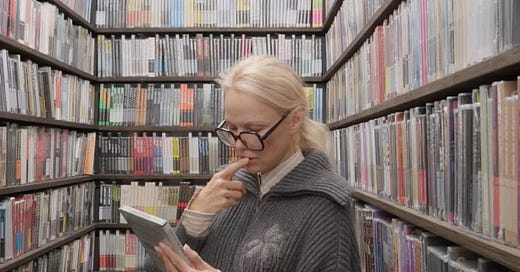



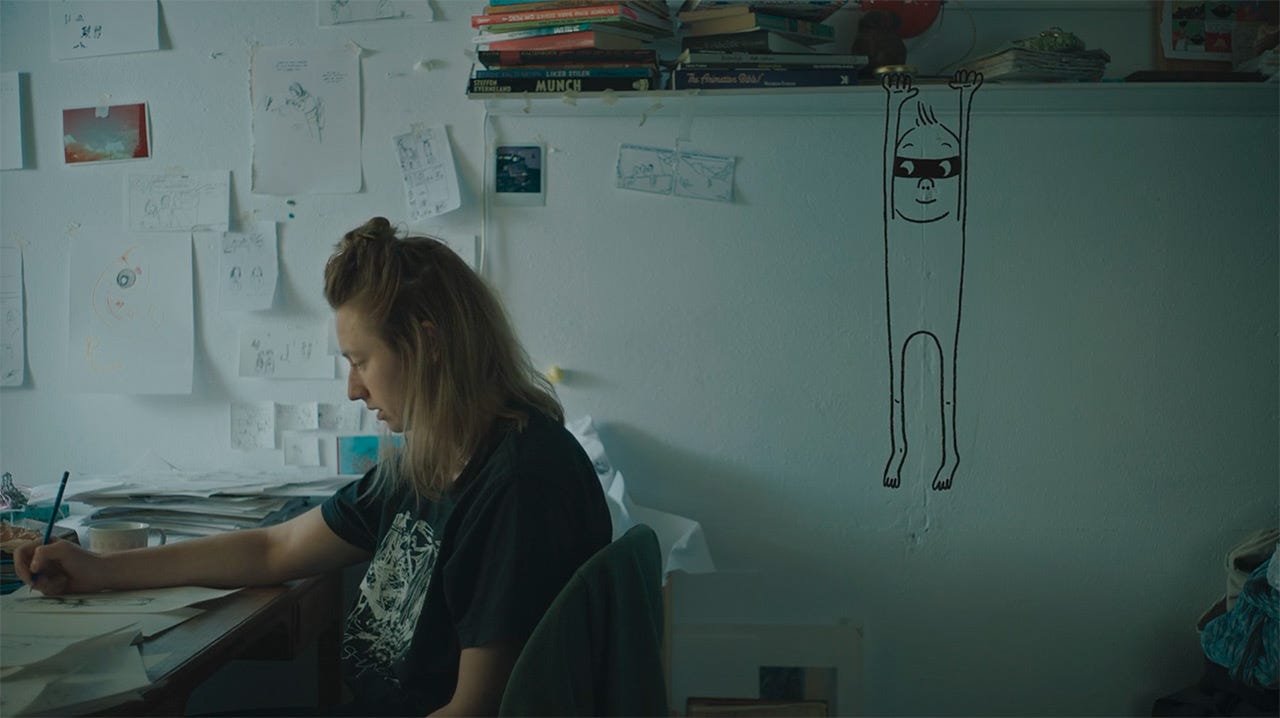
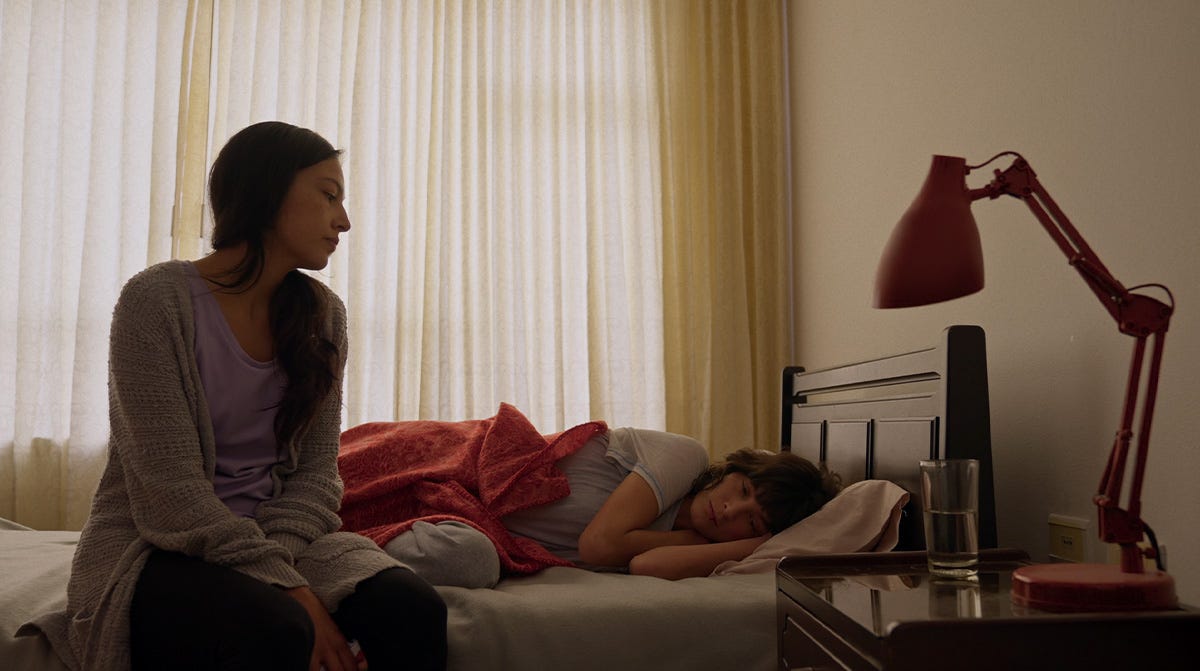

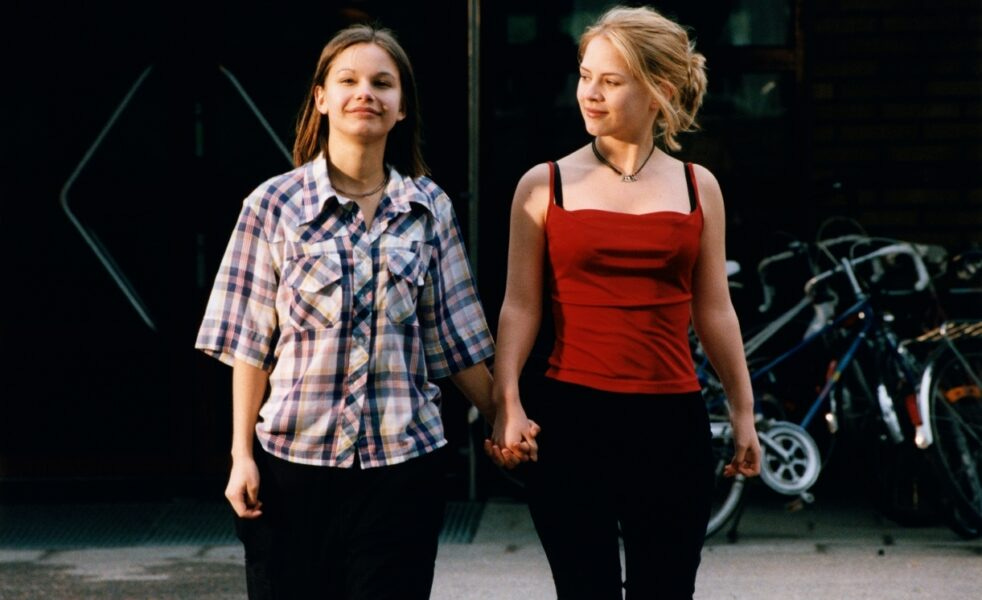

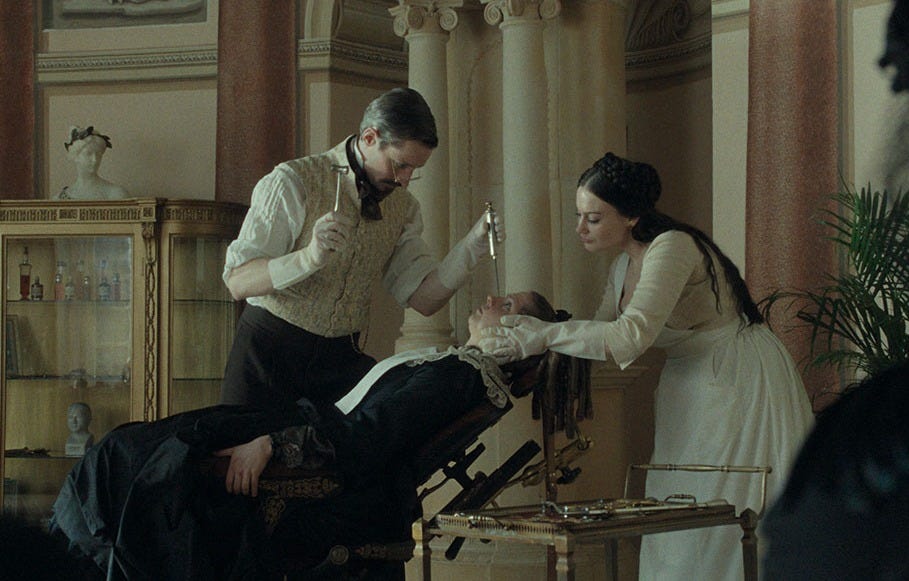


I absolutely loved this article and it really made me realize how UNcultured I truly am and will definitely watch the movies you recommended and just more international movies in general!!
I also want to suggest some Egyptian, Arabic movies that I personally lovee:
“Kira& El Gin” “During the 1919 revolution in Egypt, Ahmed Abdel-Hay Kira and Abdel-Qader El-Jin unite their fates by fighting against the English occupation.”
It’s SUCH a great film and it really captures the spirit of resistance and the colonization of Egypt in such a brilliant and fantastic way. It’s a MUST watch and I would love to hear your opinion on it if you ever give it a go!! ❤️❤️
“The blue elephant” part 1&2 it’s a psychological horror type of film that follows a man called Yahia who’s tired of his monotonous life and begins working at a psychiatric hospital. He meets an old friend, who has been accused of killing his wife, and delves into his psyche to understand his actions. The photography and storyline is SO beautiful here
I’m very sorry I’m not describing these movies properly, I’m not doing them any justice but they are truly incredible 😅💗💗
I’ve actually had this same discussion before with friends, and how we’re letting media consumption white wash us and preventing us from learning more about countries with incredible stories, and incredible movies. We’re so caught in between watching movies that are the equivalent of fast food and endless scrolling that we’re losing the ability to think for ourselves and enjoy art for what it was meant to be. Loved this article so much, thank you for putting into words my exact thoughts